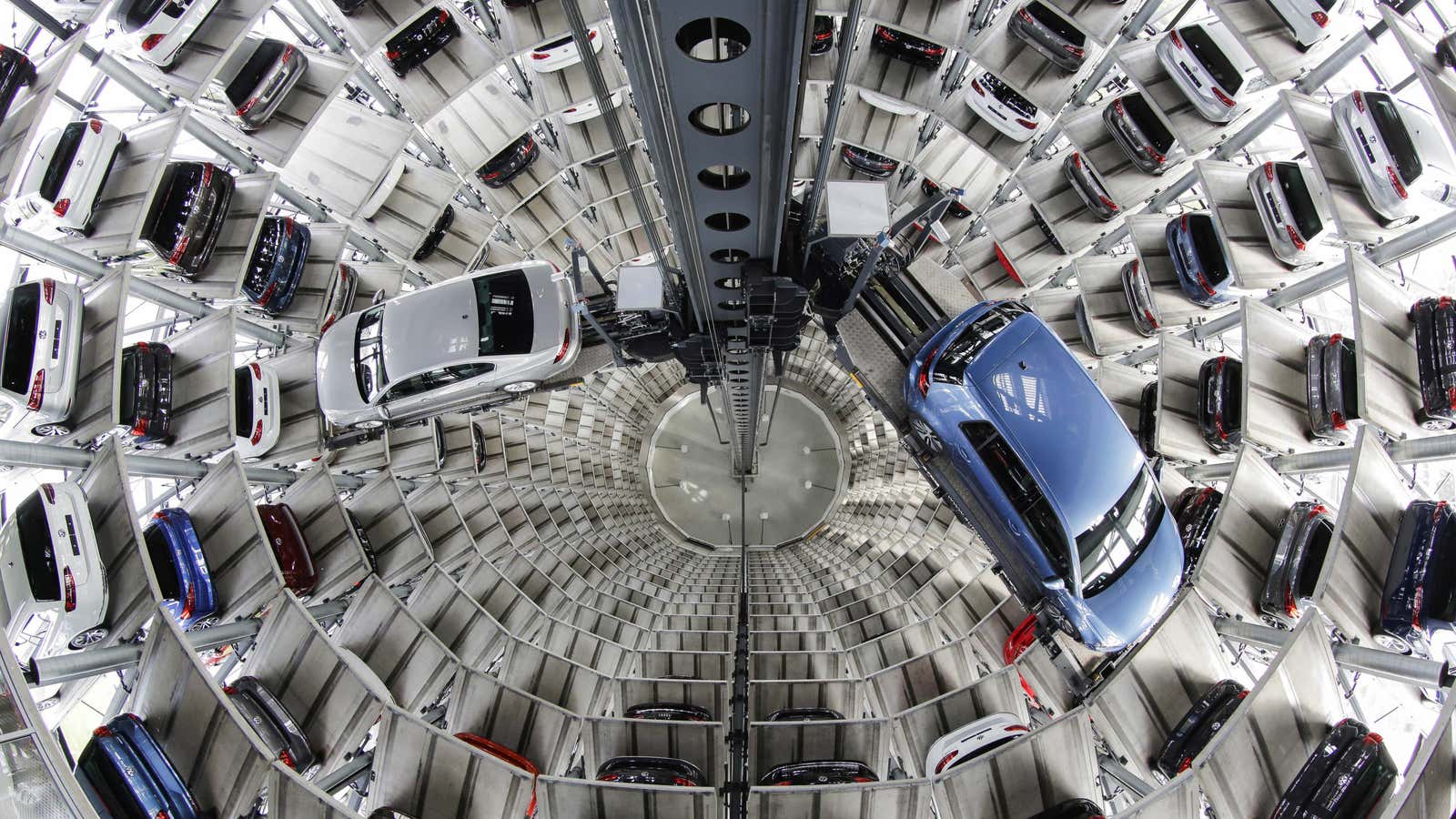It’s a basic scientific fact that air pollution causes people to die early. So naturally, Volkswagen’s cheating scandal has a death toll forecast—and the numbers just came in for Europe.
Researchers at Massachusetts Institute of Technology calculated that 1,200 people will die prematurely from exposure to illegal levels of toxic pollution pumped out of the 2.6 million Volkswagen cars in Europe rigged with “defeat devices” between 2008 and 2015, when a recall was issued. That accounts for all brands of Volkswagen Group cars sold with the cheating devices, including Audi, VW, Skoda, and Seat.
If Volkswagen takes all the affected cars off the road and successfully retrofits them by the end of 2017, producing no new excess emissions beginning in January 2018, the company would avoid being responsible for an additional 2,600 premature deaths in Europe, according to the researchers.
Of the premature deaths already statistically likely to happen, 500 are likely to occur in Germany, 160 in Poland, 84 in France, and 72 in the Czech Republic, they found. The remaining 384 early deaths would be distributed among other European countries.
The researchers published a paper of their calculations in the peer-reviewed journal Environmental Research Letters March 3. “It ends up being about a one percent extra risk of dying early in a given year, per microgram per meter cubed of fine particles you’re exposed to,” said Steven Barrett, a professor of Aeronautics and Astronautics at MIT and a co-author on the paper in a statement. “Typically that means that someone who dies early from air pollution ends up dying about a decade early.”
In total, Volkswagen rigged some 11 million cars around the world to pass government emissions tests while still emitting far more than the legal limit of nitrogen oxides, or NOx, a group of pollutants.
The same team previously found that VW’s cheating scandal would be directly responsible for about 60 early deaths in the U.S., where only 482,000 cars were sold, population density is three times lower than the Europe’s average density, and diesel cars are driven less than standard gas cars. Diesel cars in Germany, for example, are driven 20% more miles per year than diesel cars sold in the U.S., according to historical data cited by the researchers.
Not just Volkswagen
Volkswagen may not be the only car maker cheating on its emissions. The U.S. government announced allegations earlier this year against Fiat Chrysler, claiming it found that over 100,000 of its diesel trucks were programmed to cheat on emissions test—and hinted at more to come.
Barrett, the MIT researcher who co-authored the report, said his team has plans to expand its research to test all the diesel vehicles they can. “It seems unlikely that Volkswagen is the only company with issues with excess emissions,” Barrett said in a statement. “We don’t know if other manufacturers have these defeat devices, but there is already evidence that many other vehicles” emit more pollution than they do when they’re being tested.
It makes basic competitive sense, according to Paul Biedrzycki, a coder and co-founder of Cars and Code, a Brooklyn-based developer workgroup that focuses on automotive technology. “Good emissions numbers translate to sales these days,” he said. “If one does it, they all have to at least seriously consider it.”
